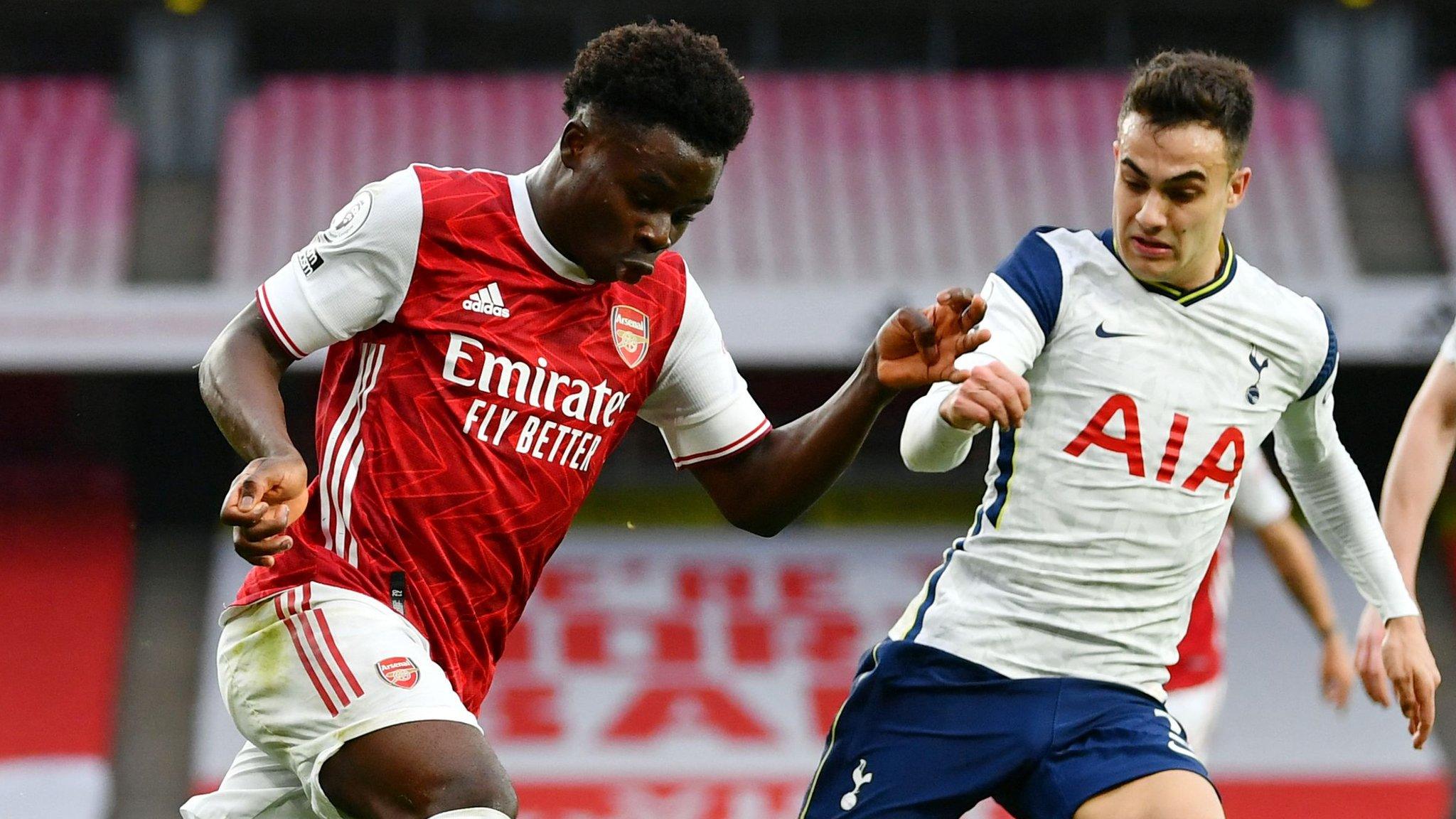Super League: Why have the plans collapsed?
- Published
- comments
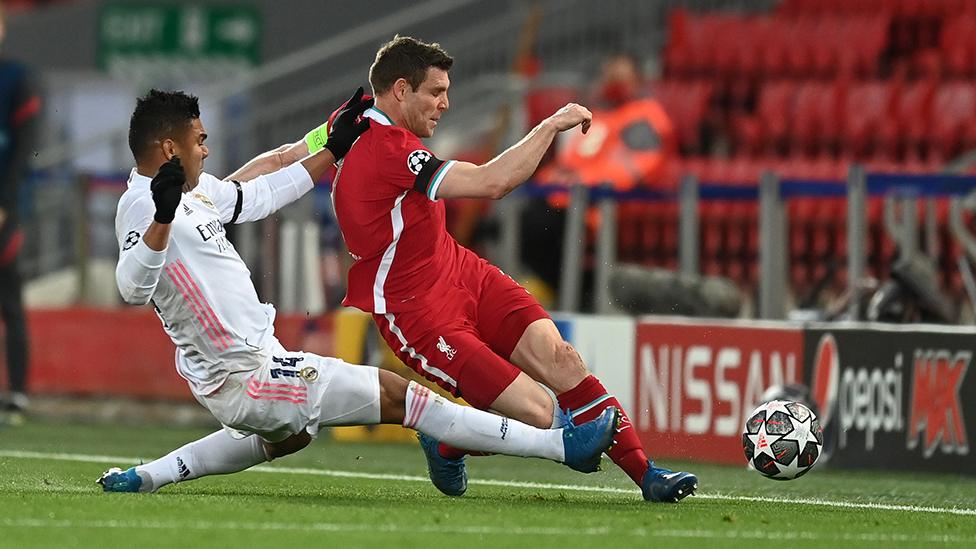
Plans for a new football European Super League (ESL) have collapsed, following the withdrawal of most of the teams involved.
The decision follows a massive backlash against the league, which had the support of some of the world's biggest clubs.
What was the idea behind the Super League?
Six English Premier League teams had signed up to the ESL - Arsenal, Chelsea, Liverpool, Manchester City, Manchester United and Tottenham.
They joined AC Milan, Atletico Madrid, Barcelona, Inter Milan, Juventus and Real Madrid as founder members.
The idea was for the clubs to remain in their national leagues, but also to play each other in a new midweek European competition, which would have rivalled the Champions League.
The ESL would have had 20 teams, of which 15 founding members would be permanent and never face relegation. Five other sides would qualify each year.
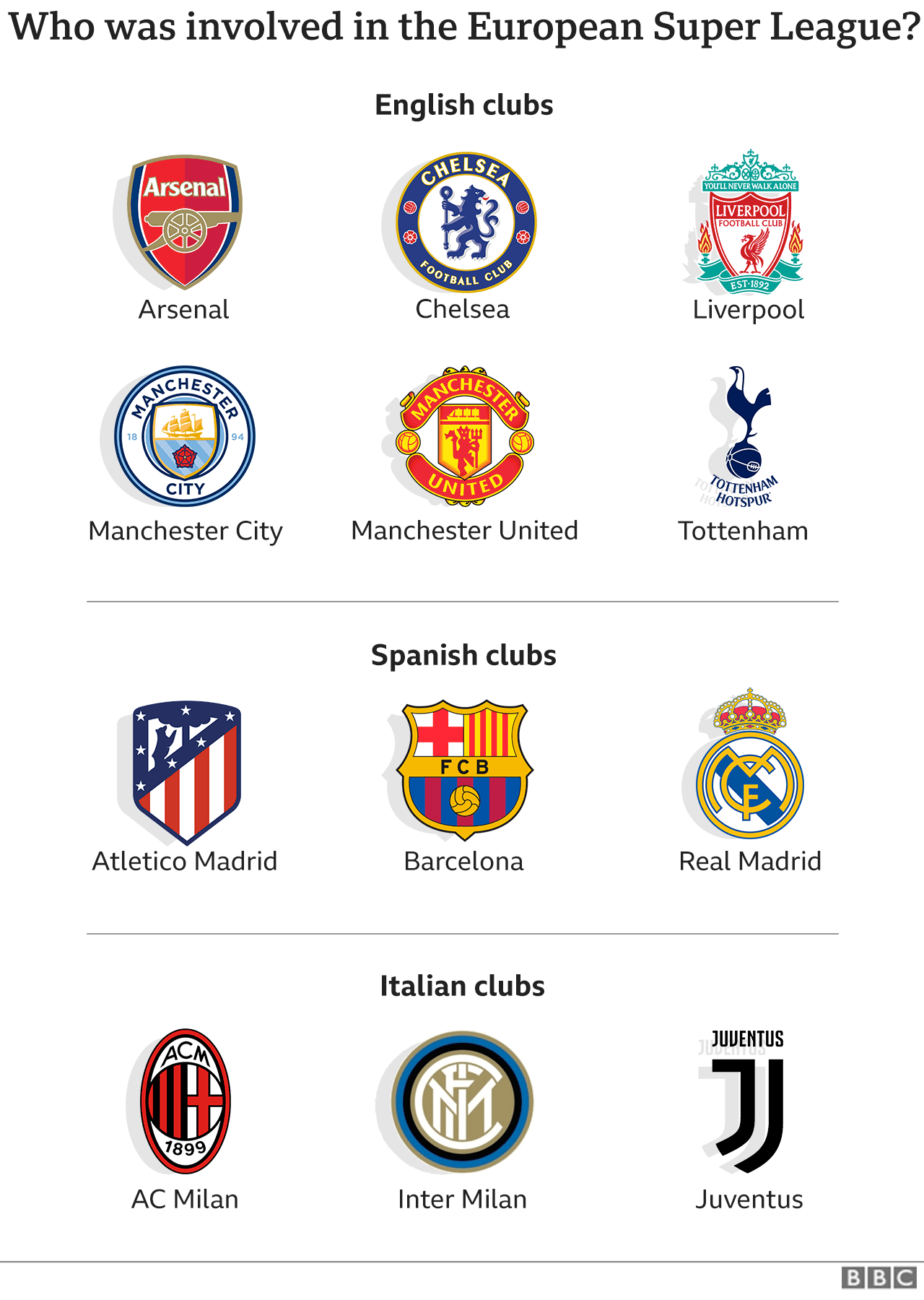
What's now happened?
All six English Premier League clubs dropped out of the project on Tuesday night.
They have now been followed by Atletico Madrid in Spain and Italian team Inter Milan.
One of the chief movers behind the ESL, Juventus chairman Andrea Agnelli, has now admitted that the ESL is not likely to go ahead.
"I remain convinced of the beauty of that project," he said. "But evidently no, I don't think that project is now still up and running."
Why was the plan so controversial?
With 15 teams in the ESL not facing qualification or relegation, critics said it would have devalued the game because it was unfair and uncompetitive.
For instance, Arsenal have not qualified for the Champions League since the 2016-17 season, but they would have been guaranteed a place - regardless of how they performed in the domestic league.
However, a future winner of the Premier League would not necessarily have qualified for the ESL if they were not a permanent member.
If this were the case, that team would miss out on millions of pounds in revenue.
The ESL attracted widespread criticism from pundits, players, MPs and most football bodies not involved.
Fans of the clubs involved held several protests outside their grounds.
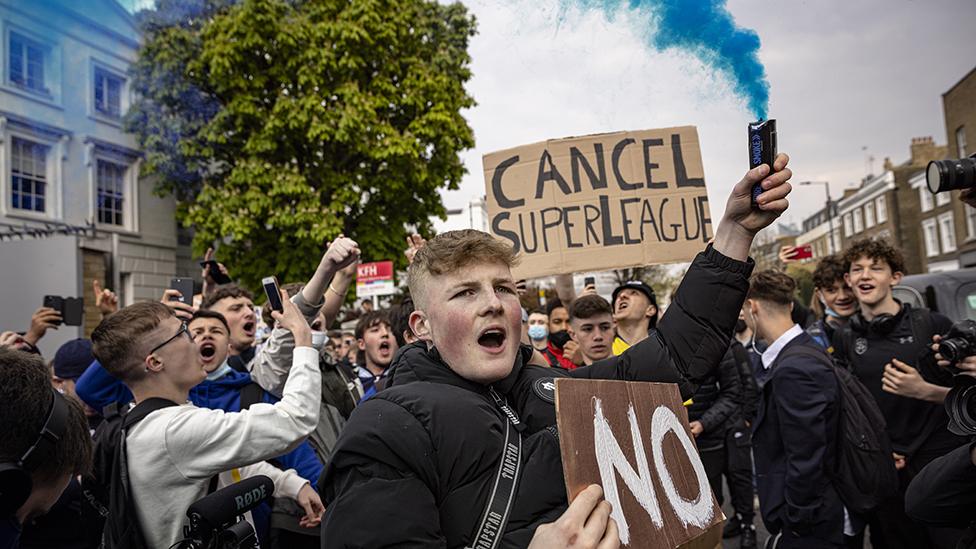
Chelsea fans protest against plans for a European Super League ahead of the club's game against Brighton
Why did the English teams drop out?
It appears they were taken aback by the strength of criticism.
Arsenal apologised in an open letter to their fans and said they had "made a mistake", adding they were withdrawing after listening to supporters and the "wider football community".
Tottenham chairman Daniel Levy said the club regretted the "anxiety and upset" caused by the proposal.
Manchester United said they had "listened carefully to the reaction from our fans, the UK government and other key stakeholders," in making their decision.
Why did the teams want a Super League?
Real Madrid president Florentino Perez had claimed it would "save football", at a time when young people are "no longer interested" because of "a lot of poor quality games".
The founding clubs were promised a share of a €3.5bn (£3bn) grant, provided by investment bank JP Morgan.
Most are in considerable debt, made worse by the Covid pandemic, due to disrupted fixtures and a lack of spectators.
Big clubs also have superstar players with multi-million pound salaries.
If they could guarantee taking part in a major European football competition every year, they would have become more valuable and stable businesses.
How would it have worked?
The 20-team league would have been split into two groups of 10, playing each other at home and away.
The top three in each group would have qualified for the quarter-finals, with the fourth and fifth-placed teams competing in a two-legged play-off for the two remaining spots.
It would then have the same two-leg knockout format used in the Champions League, with a final in May.
What have football's ruling bodies said?
The president of Uefa (the Union of European Football Associations), Aleksander Ceferin, had warned that participating clubs could be banned from European competition, and their players prevented from appearing at the Euros and the World Cup.
Mr Ceferin welcomed the English clubs' reversal, saying, "the important thing now is that we move on, rebuild the unity that the game enjoyed before this, and move forward together".
After the collapse of plans for a super league, the BBC discusses the future of football with current and former club bosses, fans and sport business experts in a special Wake Up To Money Business of Sport Podcast.
- Published19 April 2021
- Attribution
- Published19 April 2021
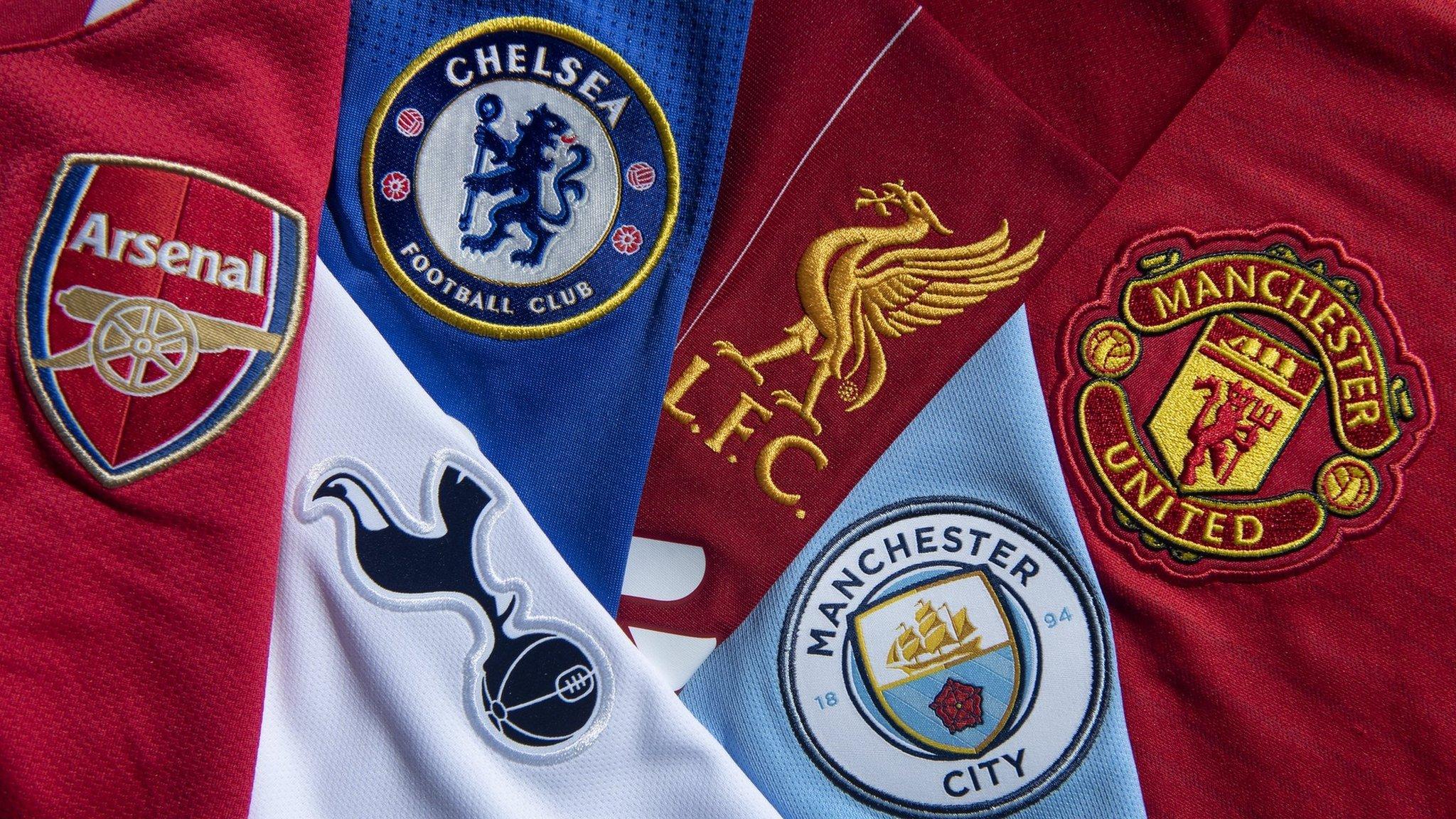
- Attribution
- Published18 April 2021
